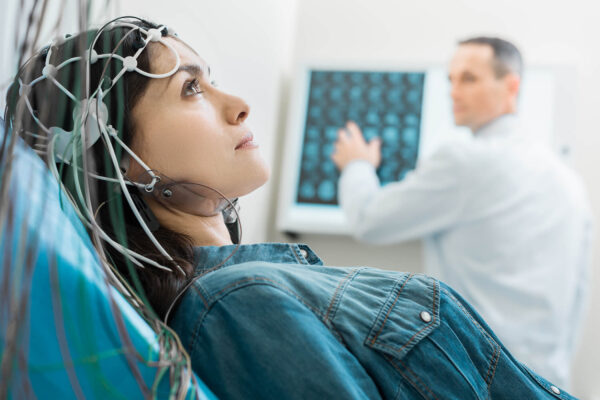
St. Mary’s Neurology Center, Inc. has an Epilepsy focused practice. Providers work with Epilepsy surgeons at various institutions in Central Florida.
What Is Epilepsy?
Epilepsy is a neurological disorder that causes seizures and abnormal behavior or sensations due to nerve cell disruption in the brain.
Main Symptom
Seizures
- Focal seizures
- seizure results from abnormal activity in one part of the brain
- Generalized seizures
- seizure results from abnormal activity in all parts of the brain
*symptoms of a seizure include temporary confusion, staring spells, loss of muscle control/function, and loss of conscience
Causes
- Genetic influence
- Head trauma
- Brain conditions
- Ex.) previous stroke or tumors can lead to epilepsy
- Infectious diseases
- Ex.) such as meningitis and AIDS can lead to epilepsy
- Prenatal injuries
- Before birth, babies can suffer brain damage if exposed to infections or lack of essential elements which might cause epilepsy
- Developmental disorders
- Ex.) autism
Services provided by Dr. Reena J. Kavilaveettil for Epilepsy
EEG
The EEG laboratory test is an objective way to determine if there is a functional and organic change in the brain. The MRI and CT can determine structural changes, but the EEG can also detect the functional changes. One excellent example is that the MRI could be normal before and after insulin coma because no structural change has occurred, but the EEG would be very abnormal in the comatose state. Since epilepsy has so many complex manifestations, a skilled epileptologist cannot always determine if a given episode, as presented by the history or even reviewed on film, is or is not epileptic. Only an EEG with ictal rhythms or interictal discharges can make such a diagnosis of epilepsy relatively certain.
Conditions commonly evaluated include:
- All patients with episodic symptoms to see if the episodes are epileptiform with ictal rhythms during the episodes or interictal discharges between the episodes.
- Mental conditions, like learning disabilities, attention deficit, hyperactivity, etc. without episodic symptoms, but with a compromised mentation. At times, these conditions may be associated with epileptiform discharges that can result in a transient cognitive impairment.
- Comatose patient that may have a subclinical status epilepticus as the basis of their coma.
- Possible brain dead patients to see if any cerebral rhythms can be found.
- All patients with possible brain damage of any type to evaluate if the damage is generalized or focal and also the degree of disturbance.
Special procedures in the EEG Laboratory include:
- Simultaneous video-EEG in order to study the details of an episode and correlation with the EEG change (done at the hospital).
- Brain stem auditory, visual, and somatosensory evoked potentials to check the integrity of those three modalities and the localization of any disturbance within their pathways (done at the hospital).

